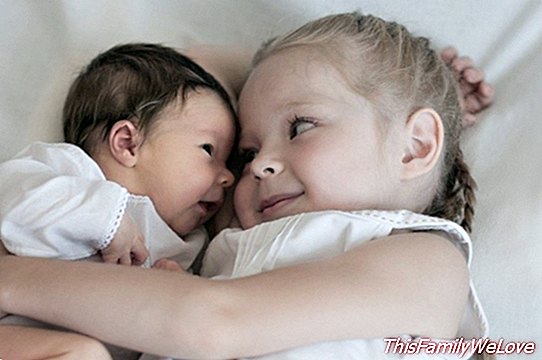Sensitivity in babies is a symptom of altruism in adult life

The Royal Spanish Language Academy defines the altruism as the "diligence in procuring the good of others even at the expense of one's own". While it is easy to know the meaning, one might ask, what defines a person with this virtue? What qualities do you have? Are you born or become altruistic?
While it is impossible to define how a person will be in his future, and there are many factors that influence the development of his way of being, there are some clues that can advance information about how someone will be in his adult stage. An example is the study conducted by the University of Virginia, where the sensitivity in babies is related to a higher altruism in maturity.
Recognition of feelings
Among the many qualities that define an altruistic person is the ability to help a stranger. Other investigations have linked this quality with greater sensitivity By understanding that these individuals are able to recognize the need in others and thus be able to provide a solution to their problems.
To check if this relationship also occurred in babies, the researchers analyzed the activity of the eyes in order to check the reaction of seven-month-old babies to a fearful face. Towards the 14 months The authors of this work collected new data based on the presence, or not, of altruistic behaviors in children.
Researchers determined that at 7 months the most sensitive children were able to understand the fear in the face of other people, however they did not recognize the joy or anger in those who surrounded. Some results suggest that the development of this personality trait has much to do with the ability to respond to the samples of feelings emitted by others.
Tobias Grossmann, lead author of this research, suggests that these results confirm the aforementioned studies. "This study provides new insights into the nature of human altruism by discovering its evolutionary and cerebral origins."
Work on empathy
As has been said, altruism is closely related to the ability to know what the other person is feeling. A virtue in which empathy has a lot to do, these are some keys to enhance this ability:
- Respect for others. It never rains to everyone's taste, understanding that others also have different ways of seeing life just as valid will help to understand how others feel.
- Treat others as you would like them to treat you. Who does not like a hug when they feel bad? Remembering the treatment that you would like to have in sad moments will help you to act according to the circumstances.
- Never be selfish. Do not expect anything in return, helping other people to be well will have a valuable prize: create a peaceful environment.
Damián Montero




